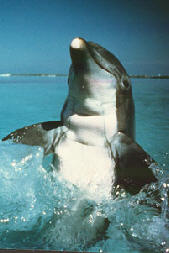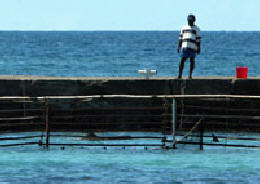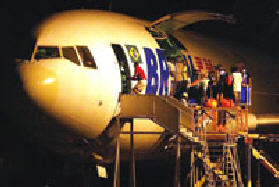|
'To date, an illegally traded dolphin has died, as have four others that were incarcerated in pens in the Solomon Islands. Many of those still alive are in poor health, yet the capture of dolphins in dubious circumstances continues," said Leah Garces, WSPA's Head of Campaigns, "Time is running out for these dolphins. These animals are not products like bags of potatoes. They are intelligent, sentient beings. How many more will die before the government takes action?"
Animal welfarists were shocked to learn that the number of dolphins taken for this operation alone is a fifth of the total number known to be kept in
captivity worldwide. WSPA, which is opposed
to the taking of wild dolphins from their natural
habitat, has been campaigning for a number of
years against the taking of dolphins for marine
parks and, in recent years, against the controversial
captive swim-with-dolphin programmes. But the
industry is a lucrative one; foreign business interests
collecting and training dolphins for shipment abroad
can sell a dolphin for up to $30,000.
|


